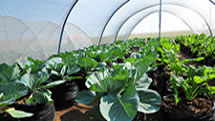By Deputy Minister Adries Nel

The National Development Plan says employment is the best form of social protection. But in SA and many parts of the developing world, we are faced with a crisis of unemployment. In parts of SA, it is an embedded feature of our economic and social fabric.
The persistence of the apartheid spatial form means many who could be economically active live so far from formal work opportunities and good education facilities that whole families remain locked out of the dynamic opportunities available in our rapidly changing economy.
While apartheid may be a thing of the past, its creation — a spatial form that continues to locate poor black communities on the margins of cities and their economies — requires proactive intervention, which we are tackling through the Integrated Urban Development Framework that Cabinet adopted recently.
The structures of both our economy and spatial form will take time and effort to rectify, making public employment programmes of particular importance in bringing unskilled South Africans and those living far from opportunities into the employment and opportunity net.
The Community Work Programme (CWP) is part of a broader family of public employment programmes in SA, but it has some unique features that have helped it take off. The programme offers participants part-time work for an unlimited period in their community. Most important, however, CWP work is useful employment identified through participatory processes within community sites. This is work that improves the quality of daily life and provides communities with tools to tackle local problems. With several years of the CWP now successfully completed, we know this approach unleashes a tangible energy within communities as things start to change for the better.
Projects chosen by communities include food gardens, home-based care for the elderly and ill, early childhood development support, construction and maintenance of community facilities, scholar patrols, the cleaning of schools, homework support, sport supervision for pupils, recycling schemes, landscaping and grass-cutting and many more — as diverse as the communities that make up SA.
Successive studies and evaluations point to the many successes associated with the approach, which invests in communities and in many cases, changes lives. The International Labour Organisation has lauded the programme as being one of the best public employment programmes in the world.
The Co-operative Governance and Traditional Affairs Department’s budget for the 2016-17 financial year provides for its continued growth, with R3.2bn for the financial year, 95% of which goes towards implementation and only 5% on administration. Of this, 70% or R2.1bn, will go into the pockets and onto the tables of participants, R446m more than the previous financial year.
In addition, communities have seen tangible benefits flow from the CWP. For example, in Gauteng, participants cleaned almost 300,000m² of public spaces, rivers and canals, 1,051 illegal dumping sites were cleared, and 2,076 community gardens were maintained.
Also, 81,000m² of cemeteries were cleaned, 10,800 children benefited at crèches, 2,058 desks were refurbished and 34,000 pupils benefited from scholar patrols.
By the end of the 2015-16 financial year, 223,315 participants had benefited from the CWP. An additional 21,423 participants will benefit by March 31 next year, with 36 more municipalities establishing CWP sites, bringing the total number of municipalities implementing the CWP to 234.
The CWP will continue to play an important role in building a more inclusive society in future.
We look forward to working with a growing number of interested parties in the private and public sector to extend its reach even further.
Andries Nel is the Deputy Minister of Co-operative Governance and Traditional Affairs





